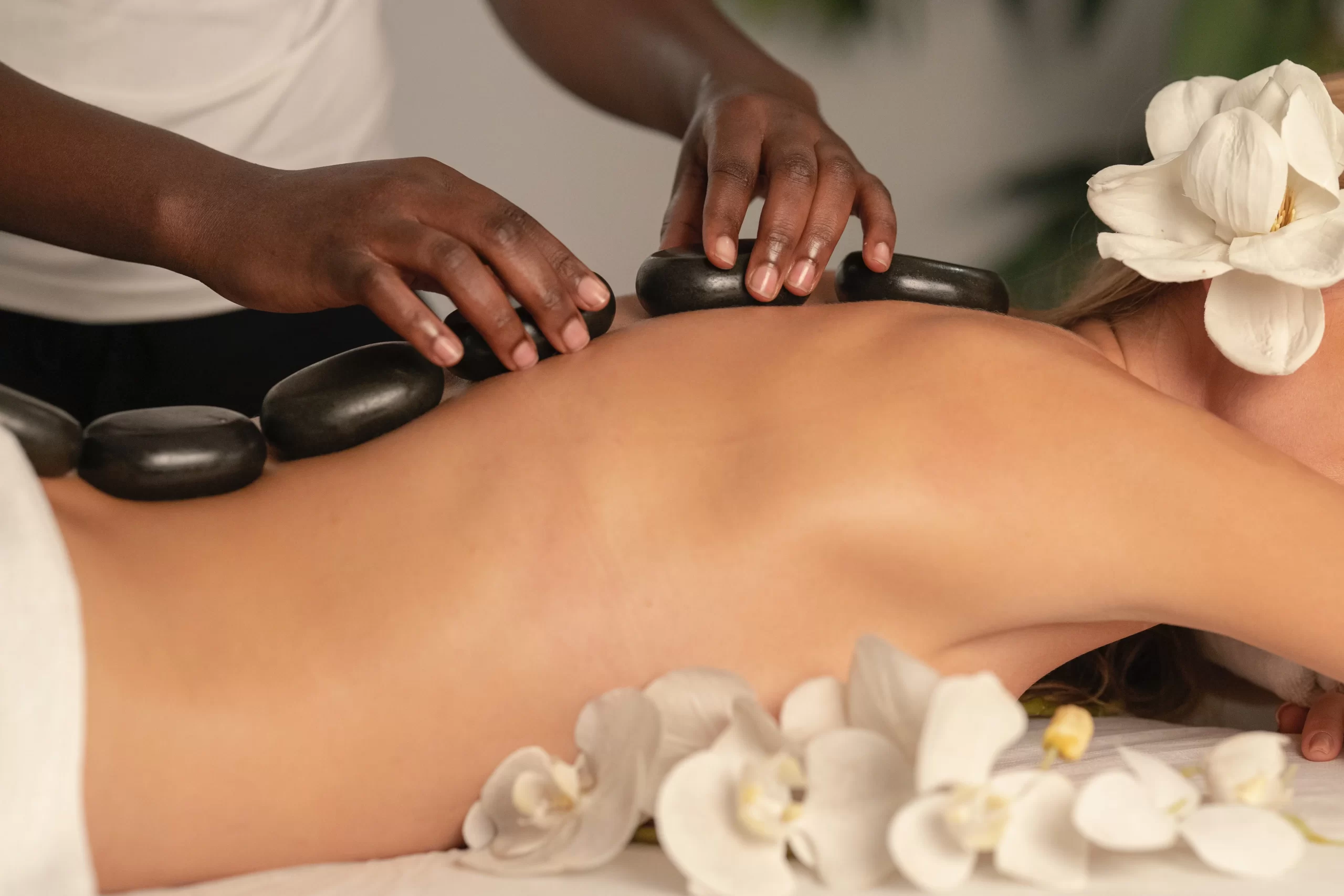Apple cider vinegar, often abbreviated as ACV, is a type of vinegar made from fermented apple juice. This process involves crushing apples and squeezing out the juice, which is then exposed to yeast and bacteria. These microorganisms ferment the sugars in the apple juice, turning them into alcohol, and subsequently, into acetic acid. The result is a tangy, amber-colored liquid with a distinctive taste and aroma.
What is Apple Cider Vinegar: What Is It?
Table of Contents
So, what is apple cider vinegar? Apple cider vinegar (ACV) is simply made by fermenting the juice of crushed apples. The fermentation process removes a lot of sugars and contains “acetic acid.” ACV has been linked to various benefits when used in cooking and other daily activities. Apple Cider Vinegar (ACV, ACV) is a liquid that is produced and sold both commercially, and as homebrew. These days, it’s had significant research done on its healing properties. There are many different types of vinegar that exist, but apple cider vinegar has been found to be one of the most used as well as beneficial. Learn how apple cider vinegar can both help your health and keep your body clean. Apple cider vinegar is a liquid formed from the fermentation of apples. It is made from apple pulp, water, yeast and sugar often with the addition of honey and contains a sour flavor that comes from the bacteria present. Apple cider vinegar can be consumed for a variety of benefits depending on how it’s used or combined with other ingredients. Apple cider vinegar is a type of vinegar made from fermented or non-fermented apples. It is touted as having health benefits, but evidence suggests that there is not enough scientific research on the effects of apple cider vinegar to say one way or the other. Apple cider vinegar can be used in cooking or taken by itself.
Types of Vinegars
Apple Cider Vinegar, like any other products is different in a number of ways. This can include the thickness or concentration of Acetic acid and the type of apple (using a sweet apple-eating variety), the result would be an apple cider vinegar that was more on the sweeter side, using an ‘on-the-vine’ variety – more tangy and acidic.
- White Vinegar: Tastes and smells like a clean, slightly acidic vinegar
- Distilled White Vinegar: Somewhat sour taste
- Red Wine Vinegar: Sweet, slightly smoky smell and richly fruity taste
- Apple Cider Vinegar: Slightly sour taste that is mellow, fruity, and refreshing
- Bragg Apple Cider Vinegar: Milder than the traditional variety but still tangy with a predominant apple flavor
- Lemon Juice Vinegar: Slightly sour with complementary sweet and tart flavors that provide a light flavor to dishes without adding too many calories
Benefits of Vinegars
Vinegar is used in many different contexts and has a lot of benefits. It can be used as an ingredient to cook with or as a detoxification tool. Studies have also shown it to help aid in weight loss, hair growth, and even heart health.
- Vinegar contains acetic acid, which makes the fiber inside fruits digestible when consumed.
- This Acid curbs appetite by reducing the hunger hormone ghrelin and increases serotonin levels.
- It is also Good for the heart and contributes to lowering cholesterol.
- Increases cardiovascular health.
- Vinegar has Proven to lower blood sugar and thereby reduce insulin fluctuations.
- It is also Good for the heart and contributes to lowering cholesterol.
- Reduces hair loss.
- Vinegar contains enzymes that break down the dead skin cells on your scalp to make room for new growth, which can make hair grow thicker. Increases bone density.
- Vinegar naturally increases Metabolism and also contributes to the production of hormones that aid in strong bones. Natural cure for skin issues .
Vinegar can be a natural treatment for dermatitis, warts and other conditions that affect the skin. Reduces candida. Candida develops when the pH levels in your body become imbalanced. Vinegar improves the body’s natural pH balance, making it less hospitable to candida. Helps clear acne . It also may help to clear up your skin!
In addition to these wonderful properties , white vinegar can be used for green cleaning, deodorizing and car maintenance. Vinegars, especially apple cider vinegar, are lauded for their numerous health benefits. They are believed to aid in digestion, help regulate blood sugar levels, support weight loss, and boost skin health. Additionally, the acetic acid in vinegar has antimicrobial properties, making it a useful natural disinfectant.
Have you used vinegar or do you have any other health benefits to add?
Uses for Vinegar in Daily Life
Vinegar can be used in a number of different ways around the house, and not just in the kitchen. There are many times when you’ll need vinegar, so it’s best to keep some on hand. Apple cider vinegar is a commonly used type of vinegar. It is typically used for cooking because it has the perfect acidity to balance the taste and texture of food. It is also known for being part of an expected remedy to cure stomach upset or indigestion. For other illnesses, such as canker sores, apple cider vinegar can be used topically as a rinse or gargle.
1. Cleaning
Vinegar can be used as an effective cleaning agent as it is acidic, which means it can kill germs. It also removes calcium deposits and mineral hardness in the water, making it easier to clean. Vinegar is a powerful, natural cleaner that can tackle a variety of household tasks. Its acidity helps break down grime and kill bacteria, making it an excellent alternative to chemical cleaners. Mix equal parts water and vinegar to create an all-purpose cleaner for surfaces, countertops, and floors.
2. Diluting and Purifying
Vinegar is also used for cleaning and for laundry. It’s a natural way to eliminate tough stains from clothes, like oil or juice. You can saturate the stain with vinegar before putting the article of clothing in a hot wash. It will help break down the stain, making it easier to remove when you do laundry.
You can use vinegar to dilute and purify various substances. For instance, adding a splash of vinegar to a jar of water with vegetables can help remove pesticides and bacteria. It’s also effective for purifying drinking water in emergency situations, although it’s not a substitute for proper filtration.
3. Cooking
Vinegar is what makes vinaigrette, pickles, and sauces so delicious. It’s a great way to add flavor without adding calories or fat. All you need to do is splash it in when your dish needs some zest, like when you’re making a marinade for meat or vegetables. Vinegar is a staple in many culinary applications. It can be used to add a tangy flavor to salad dressings, marinades, and sauces. A dash of vinegar can enhance the flavor of soups and stews, and it’s also useful for tenderizing meat. For baking, vinegar can be used to create a buttermilk substitute or to activate baking soda in recipes.
4. Hair care
Vinegar can actually be used as a mild shampoo. It helps to remove product build-up, which can make your hair look greasy or dull. Vinegar is also clarifying and helps to restore the pH balance in your hair. It’s also perfect for those with sensitive scalps because it doesn’t produce any harsh chemicals that could irritate you skin.
Using apple cider vinegar as a hair rinse can leave your hair shiny and smooth. The acidity helps balance the scalp’s pH, remove buildup, and combat dandruff. Mix one part vinegar with two parts water and use it as a final rinse after shampooing.
5. Placing on wounds to clean
Vinegar can be used to clean wounds on the skin and in the mouth. It is a natural antiseptic that will kill bacteria, reduce inflammation, and if it is diluted enough, it can even act as a painkiller. If you need an emergency remedy for an on-the-go bite or sting, vinegar can provide some relief.
Vinegar’s antiseptic properties make it a useful option for cleaning minor cuts and scrapes. Dilute it with water and apply it to the wound to help prevent infection. However, it may sting, so be prepared for a little discomfort.
8. Clearing clogged drains
Vinegar can be used to unclog drains with a clogged pipe. Pour vinegar down the drain and allow it to sit for 15 minutes. Next, pour boiling water and baking soda down the drain to clear out the clog.
To unclog drains naturally, pour a mixture of baking soda and vinegar down the drain. This combination creates a fizzy reaction that can help break up clogs. Follow it with boiling water to clear the residue.
6. Removing stickers from glass, carpet, etc.
Vinegar is a great solution for removing stickers from glass, carpet, and other surfaces. It will break down the adhesive and allow you to remove the sticker easily. Vinegar also works well for removing hard water stains on surfaces like sinks, tubs, and showers as it loosens the residue that builds up over time.
Vinegar can dissolve adhesive residue, making it easier to remove stickers and labels from various surfaces. Soak the sticker with vinegar, let it sit for a few minutes, and then peel it off. For stubborn residue, scrub gently with a sponge.
7. Treating foot fungus
Vinegar is a natural fungicide and can be used to treat fungal infections like athlete’s foot. Add vinegar to warm water and soak your feet for ten minutes or so. If the infection persists, try soaking your feet twice a day in a mixture of apple cider vinegar diluted with water.
Soaking feet in a vinegar solution can help treat foot fungus. The antifungal properties of vinegar can combat infections like athlete’s foot. Mix one part vinegar with two parts water and soak your feet for 15-20 minutes daily.
9. Washing windows
Vinegar is a common ingredient in many household cleaners, but did you know that it can be used to clean windows? Simply pour a few tablespoons of vinegar into a bucket with warm water and use a sponge to wipe the window.
For streak-free windows, use a mixture of vinegar and water. Spray the solution onto the glass and wipe it clean with a microfiber cloth. The vinegar cuts through dirt and grime, leaving your windows sparkling clean.
10. Deodorizing your refrigerator or underwear drawers
Try adding a cup of vinegar to a fresh pot of boiling water, turn off the heat and let it sit for 30 minutes. Place a towel on the bottom of each drawer and cover with the pot. The smell won’t be as strong afterwards. Vinegar can neutralize odors effectively. Place a bowl of vinegar in your refrigerator or a small dish in your underwear drawer to absorb unpleasant smells. You can also use it to wipe down surfaces and eliminate lingering odors.
11. Drying herbs for storage
I dried my lavender and rosemary sprigs with a paper towel, then whipped out the vinegar. I poured it all over the herbs, making sure to cover every inch of them (you don’t want any to be left out), and let them sit for about five minutes. Then I gently squeezed the water from them and placed them in a baggie with a little more vinegar.
Preserve your garden herbs by drying them with the help of vinegar. Rinse the herbs in a vinegar and water solution to remove any dirt and pests. Then, hang them to dry in a well-ventilated area. Once dried, store them in airtight containers.
Conclusion
I remember the first time I used apple cider vinegar to clean my kitchen. The smell was strong, but the results were impressive. My countertops gleamed, and it felt good knowing I wasn’t using harsh chemicals. Since then, vinegar has become a go-to for many of my household tasks.
Incorporating vinegar into your daily life can bring numerous benefits, from improving your health to keeping your home clean. Whether you’re using it for cooking, cleaning, or personal care, vinegar is a cost-effective and eco-friendly solution. Try some of these methods and see how vinegar can make a difference in your routine. Apple cider vinegar has been used medicinally and as dressing since it was popularized in the 19th century. Gaseous droplets that emitted from drinks or food dishes containing vinegar were believed to kill nearby flies, but now the protective benefits of ACV revolve more around what it does for humans. The acetic acid somehow affects the bacteria that lead to cancer, so there are documented possible effects on weight loss and diabetes.
Have you tried using vinegar for any of these purposes? What other unique uses for vinegar have you discovered? Share your experiences and tips with others who might benefit from this versatile ingredient.






